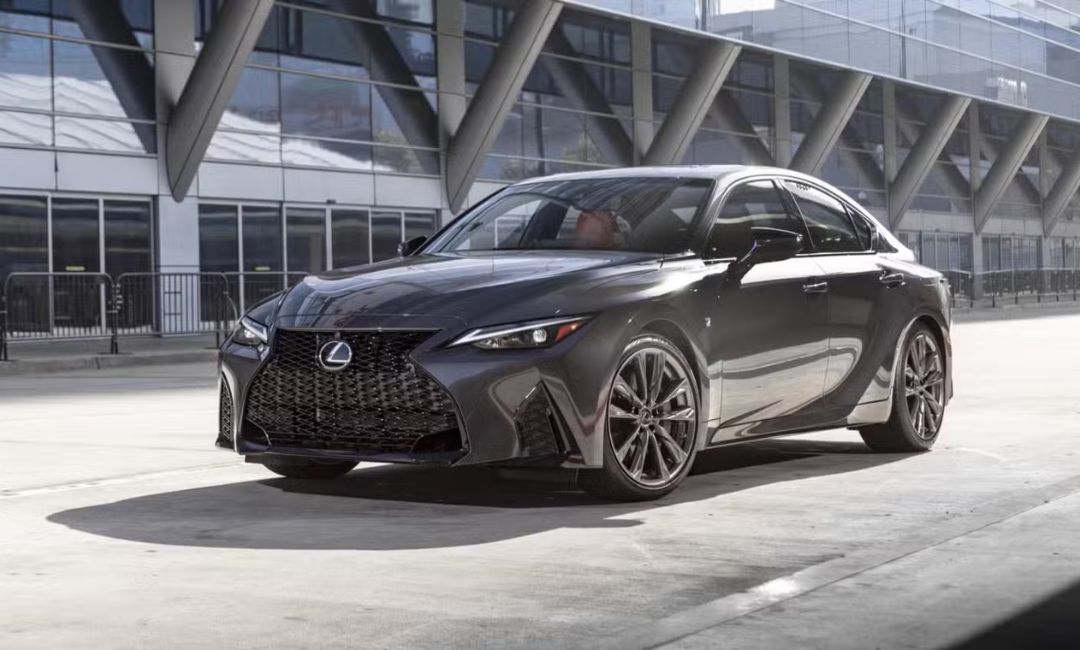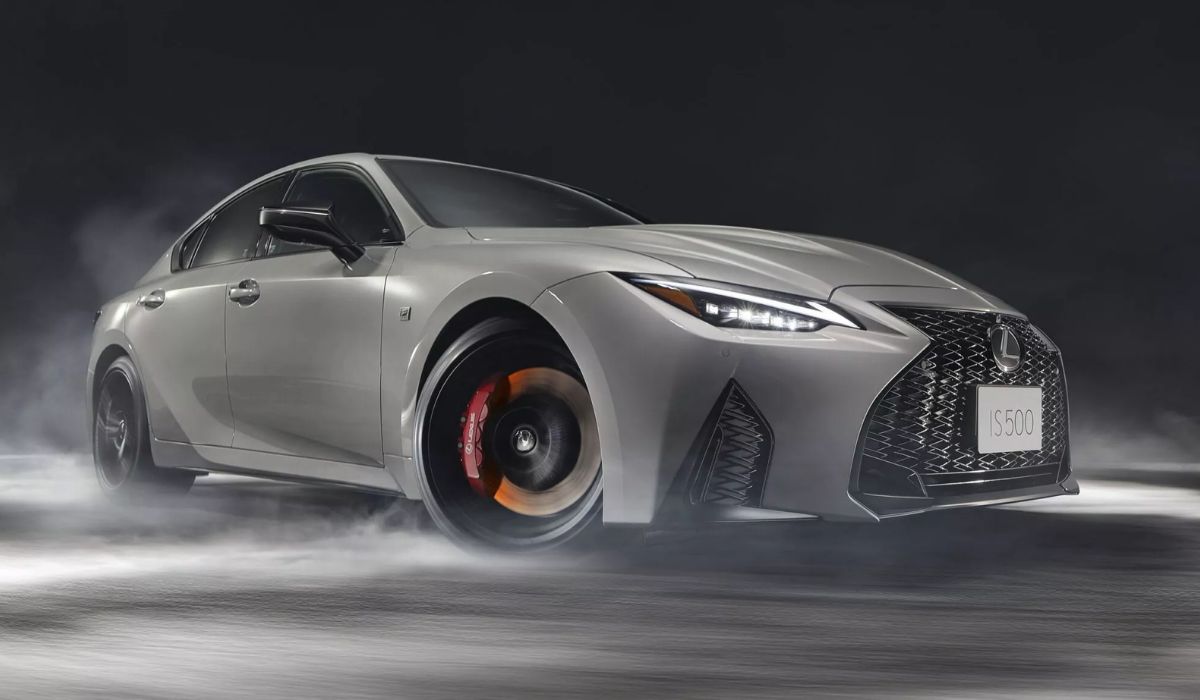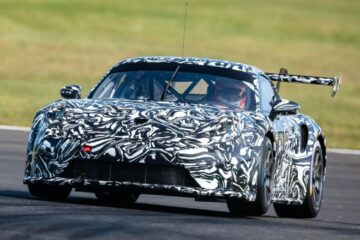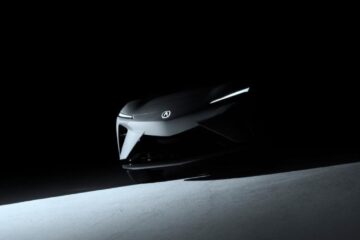Quick Highlights:
- Lexus will end IS and RC production by October 2025
- The V8-powered IS 500 and RC F are not getting successors
- UX 300e electric crossover also set to exit
- Toyota Motor Manufacturing Canada will halt IS/RC assembly
- Lexus shifts focus to EVs, crossovers, and hybrids
Lexus Axes IS and RC Models by Late 2025
The end is official. Lexus is discontinuing its IS and RC series of sports sedans — including the V8-powered IS 500 and RC F — with production set to wrap up in the final quarter of 2025. The announcement comes directly from Lexus Canada, confirming that both nameplates will not return after this model year.
On the Lexus Japan site, a notice also appears on the IS model page, stating:
“Notice of End of Production for the IS500 / IS350 / IS300h (AWD) / IS300
Thank you for considering our vehicles. Production of the IS500 / IS350 / IS300h (AWD) / IS300 will end in November 2025.
Sales will end once orders reach the production volume up to November. Depending on when you consider purchasing a vehicle, some packages may no longer be available. Please contact your Lexus dealer for details.”
The phase-out includes the following models:
- IS 300, IS 350, and IS 500 sedans
- RC 300, RC 350, and RC F coupes
- UX 300e electric crossover, the brand’s first EV
All of these vehicles are currently built at Toyota Motor Manufacturing Canada (TMMC) in Cambridge, Ontario. Lexus has made no mention of direct successors, suggesting a full strategic pivot. After 20 years of IS production at TMMC, the factory is reportedly set to shift toward hybrid and electric production as part of Toyota’s broader North American electrification strategy.
Goodbye to the Lexus V8 Era
The naturally aspirated 5.0-liter V8 engine in the IS 500 and RC F is going out with them. Once praised for its high-revving character and rear-wheel-drive purity, this engine represents the last of Lexus’ internal-combustion performance lineage.
The same V8 was a staple of Lexus F performance cars for over a decade, originating in the IS F model introduced in 2008. In its final form, the IS 500 F Sport Performance delivered 472 hp and 395 lb-ft, while the RC F peaked at 472 hp and 0–60 in 4.2 seconds. Both were rear-drive only, bucking the industry trend toward AWD performance.
With these models gone, Lexus loses its most visceral ICE offerings — and there’s no indication that a new V8 or similar enthusiast-focused replacement is on the way.
What’s Next for Lexus?

The future is electric and hybrid-heavy. Lexus is doubling down on its upcoming LF-ZC electric sedan and LF-ZL electric crossover, both previewed as next-generation BEVs built on a modular platform with a Lexus-specific operating system.
Lexus aims to become a 100% EV brand globally by 2035, and in markets like Europe and North America, it’s targeting 100% EV sales by 2030.
In the meantime, the brand will continue to push volume with hybrid nameplates such as:
- ES 300h
- RX 500h
- TX 550h+
But for driving purists, the absence of rear-drive sport sedans and coupes leaves a noticeable gap.
Still Want a Performance Sedan or Coupe? Try These Rivals
| Model | Engine Options | What to Know |
| BMW 3 Series | Turbo I4, I6, plug-in hybrid | Balanced, tech-rich, and still rewarding to drive |
| BMW M2 / M4 | Twin-turbo I6 (RWD/AWD) | Pure driver’s cars — sharp, aggressive, and unapologetic |
| Audi S5 / RS5 | Turbocharged V6 (AWD) | Sleek styling with quattro grip and strong midrange punch |
| Infiniti Q50 Red Sport | Twin-turbo V6 (RWD/AWD) | Aging interior, but the 400 hp V6 still delivers real thrills |
| Cadillac CT4-V / CT5-V | Turbo I4, twin-turbo V6, supercharged V8 | Muscle-car heart wrapped in sharp American luxury |
Final Word
Lexus ending the IS and RC nameplates isn’t just a product move — it’s a signal. The brand is going all-in on electrification and modern luxury, even if it means walking away from some of its most respected performance machines.
For fans of the IS 500 and RC F, this moment is bittersweet. They’re not being replaced, and there’s no analog successor on the horizon.
Enthusiasts still have options, but Lexus’ retreat from this space will be felt. For many, it marks the quiet fadeout of something rare: affordable, naturally aspirated, rear-drive luxury performance — built to last, and now gone for good.
Read More:




